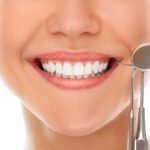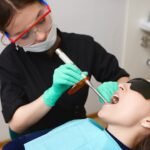Table of Contents
Understanding the Importance of Flossing for Oral Health
Flossing is an essential daily habit that often goes overlooked in oral care routines. While brushing your teeth is important for removing plaque and bacteria from the surfaces of your teeth, flossing plays a crucial role in cleaning the spaces between your teeth where toothbrush bristles cannot reach. These spaces, known as interdental areas, are notorious for harboring plaque, food particles, and bacteria. Failure to remove these substances can lead to various dental issues such as gum disease, tooth decay, and bad breath.
Research has shown that flossing can significantly reduce the risk of gum disease, also known as periodontal disease. When plaque is allowed to accumulate along the gumline, it can cause inflammation and infection in the gums, leading to gum disease. Flossing helps to remove plaque and bacteria from these areas, preventing the buildup and reducing the risk of gum disease. In fact, a study published in the Journal of Clinical Periodontology found that individuals who flossed regularly had significantly fewer signs of gum disease compared to those who did not.
In addition to preventing gum disease, flossing can also help remove plaque and tartar buildup between the teeth. Plaque is a sticky film that forms on the surfaces of the teeth and contains harmful bacteria. Over time, if not removed, plaque hardens and turns into tartar, which cannot be removed by brushing alone. Flossing removes plaque from these hard-to-reach areas, preventing the formation of tartar and maintaining the overall health of your teeth and gums.

Preventing Gum Disease through Regular Flossing
Regular flossing is a crucial step in preventing gum disease, also known as periodontal disease. This common oral health condition can lead to inflammation, gum recession, and even tooth loss if left untreated. By incorporating flossing into your daily oral care routine, you can significantly reduce your risk of developing gum disease and maintain healthy gums.
Gum disease occurs when plaque, a sticky film of bacteria, builds up along the gumline and between the teeth. Brushing alone cannot effectively remove all of the plaque in these hard-to-reach areas, which is why flossing is essential. Flossing allows you to remove plaque and food particles that can accumulate between the teeth and irritate the gums. By eliminating these sources of inflammation, you can help prevent the onset and progression of gum disease. Additionally, flossing can also help to remove plaque and tartar buildup beneath the gumline, where brushing alone cannot reach. This can further reduce the risk of gum disease and promote better overall oral health.
How Flossing Can Help Remove Plaque and Tartar Buildup
Flossing is an essential part of maintaining optimal oral health, as it can effectively remove plaque and tartar buildup. Plaque is a sticky, colorless film that forms on the teeth and contains bacteria. If left unaddressed, plaque can harden and turn into tartar, which is a calcified deposit that cannot be removed by brushing alone.
Regular flossing can help prevent the accumulation of plaque and tartar by reaching areas that are difficult to clean with a toothbrush. The thin thread of dental floss can effectively remove plaque and food particles stuck between the teeth and along the gumline. This process not only helps prevent the formation of tartar, but also reduces the risk of gum disease, tooth decay, and other oral health issues. By incorporating flossing into your daily oral care routine, you can maintain a healthier mouth and a brighter smile.
In addition to removing plaque and tartar, flossing also promotes healthy gums. When plaque and tartar are allowed to remain on the teeth, they can irritate the gums and lead to inflammation. Over time, this can progress to gum disease, a serious condition that can result in gum recession, bone loss, and even tooth loss. By flossing regularly, you can help keep your gums healthy by removing the bacteria and debris that can cause these problems. So, make sure to include flossing in your daily oral care routine to enjoy the benefits of a plaque and tartar-free smile, as well as healthier gums.
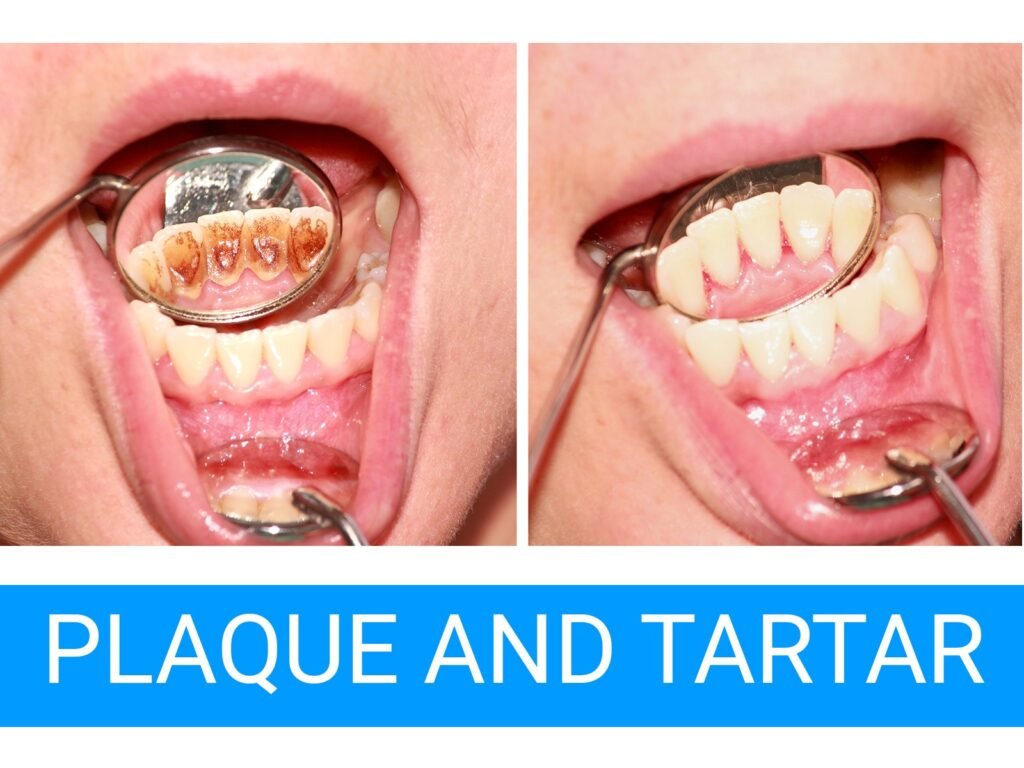
The Link Between Flossing and Preventing Cavities
Regular flossing is not only crucial for maintaining healthy gums, but it also plays a significant role in preventing cavities. Cavities, also known as dental caries, are a common oral health issue caused by the buildup of plaque and tartar on the teeth. While brushing alone can remove some of this buildup, flossing is essential for reaching the areas between the teeth and along the gum line, where plaque and bacteria often accumulate.
When we eat or drink, particles of food and drink can get trapped between our teeth. Over time, these particles combine with bacteria in the mouth to form a sticky film called plaque. If plaque is not effectively removed through proper oral hygiene practices like flossing, it can harden into tartar, creating a breeding ground for harmful bacteria. These bacteria produce acids that can damage the enamel, the protective outer layer of the teeth, and lead to cavities.
By incorporating flossing into our daily oral care routine, we can remove the plaque and bacteria from areas that brushing alone cannot reach. This helps to prevent the formation of cavities and promotes better overall oral health. It is important to note that flossing should not replace brushing but should be done in conjunction with it for maximum effectiveness.
Flossing: A Key Component of a Comprehensive Oral Care Routine
Regular flossing is not only an essential part of maintaining good oral hygiene but also plays a vital role in a comprehensive oral care routine. By incorporating flossing into your daily dental care routine, you can effectively remove plaque and food particles that brushing alone may not be able to reach. This helps to prevent the buildup of harmful bacteria in between your teeth and along the gumline, reducing the risk of gum disease and decay.
In addition to preventing oral health issues, flossing can also promote overall dental well-being. Research has shown that individuals who floss regularly are less likely to experience bad breath, as it helps to remove bacteria and food debris that can contribute to unpleasant odors. Furthermore, by preventing gum disease and tooth decay, flossing can help to preserve the integrity of your natural teeth and reduce the likelihood of needing more extensive dental treatments in the future. Therefore, incorporating flossing as a key component of your oral care routine is crucial for maintaining optimal dental health and overall well-being.
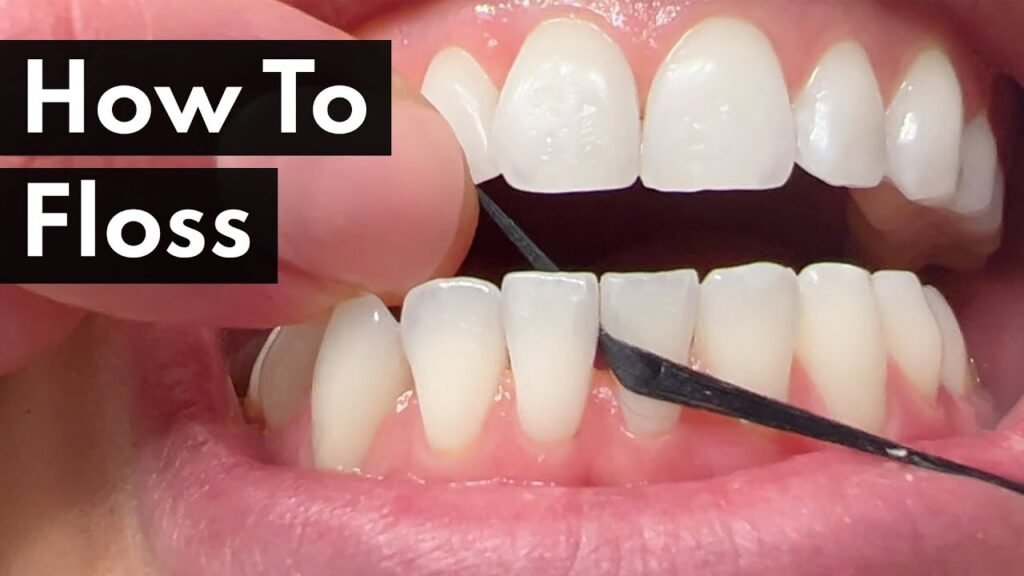
Exploring the Connection Between Flossing and Fresh Breath
Maintaining fresh breath is a key concern for many individuals, as it directly influences our confidence and social interactions. While brushing your teeth is a well-known method to combat bad breath, exploring the connection between flossing and fresh breath can unlock even more benefits. Flossing, in addition to regular brushing, plays a vital role in maintaining optimal oral hygiene and combating bad breath-causing bacteria.
When we brush our teeth, we focus primarily on the visible surfaces, neglecting the spaces between our teeth. These interdental areas create the perfect environment for plaque and food particles to accumulate, leading to the growth of odor-causing bacteria. This bacterial activity can result in unpleasant breath odors. However, incorporating flossing into your oral care routine effectively removes these hidden food particles and plaque, reducing the population of bacteria in your mouth and subsequently improving your breath.
Furthermore, flossing helps prevent the development of gum disease, which is often accompanied by persistent bad breath. Gum disease, also known as periodontal disease, is primarily caused by the buildup of plaque and tartar along the gumline. These substances not only contribute to the progression of gum disease but also emit foul odors. By utilizing flossing as a regular preventive measure, you can effectively remove plaque and tartar buildup, reducing the risk of gum disease and improving the freshness of your breath.
As we delve deeper into the connection between flossing and fresh breath, it becomes evident that flossing is not merely an optional step in our oral care routine, but a crucial one. By incorporating flossing into your daily routine, you can effectively remove food particles, plaque, and tartar from hard-to-reach areas, reducing the population of odor-causing bacteria and preventing the development of gum disease. Taking a proactive approach to your oral hygiene through regular flossing can not only provide you with fresher breath but also contribute to overall oral health and well-being.
How Flossing Can Help Maintain Healthy Gums
Flossing is an essential part of maintaining healthy gums. While brushing your teeth can effectively remove plaque and food particles from the surface of your teeth, it often fails to reach the tight spaces between your teeth and along the gumline. This is where flossing comes in. By using dental floss to clean these hard-to-reach areas, you can effectively remove plaque and bacteria, which helps prevent gum disease.
One of the major benefits of flossing is its ability to stimulate the gums and improve circulation. When you floss, you gently massage the gum tissue, increasing blood flow and promoting overall gum health. This can help prevent inflammation, swelling, and tenderness of the gums, which are common signs of gum disease. By maintaining healthy gums through regular flossing, you can reduce the risk of gum infections and gum recession, ultimately ensuring a strong foundation for your teeth.
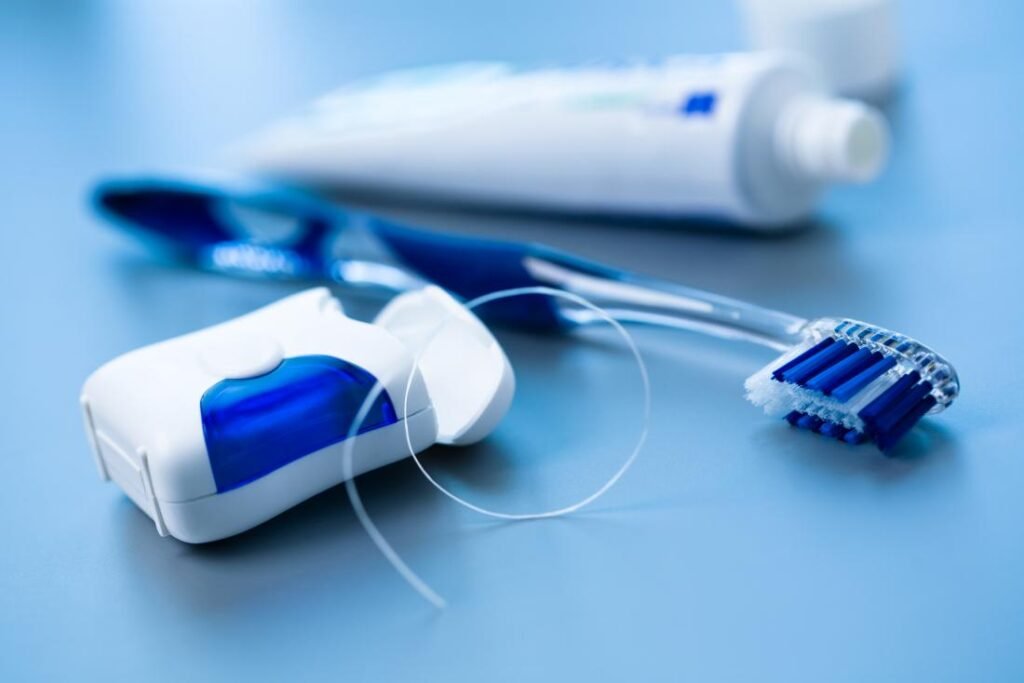
The Role of Flossing in Preventing Tooth Decay
Tooth decay is a common oral health issue that affects millions of people worldwide. It occurs when bacteria in the mouth feed on sugars and produce acids that erode the enamel, the protective outer layer of the teeth. While brushing twice a day is essential for maintaining good oral hygiene, flossing plays a crucial role in preventing tooth decay.
Flossing helps remove plaque and food particles that get trapped between the teeth and in hard-to-reach areas that a toothbrush cannot easily access. This is particularly important because dental plaque is a sticky film that contains bacteria, which, if left undisturbed, can lead to tooth decay. By flossing daily, you can effectively remove these harmful substances and reduce the risk of developing cavities between the teeth. Additionally, flossing also eliminates tartar buildup, a hardened form of plaque that cannot be removed by brushing alone. By preventing plaque and tartar accumulation, flossing helps maintain optimal oral health and prevents tooth decay.
Flossing Techniques: Finding the Right Method for You
Flossing is an essential part of maintaining good oral hygiene and preventing dental problems. However, choosing the right flossing technique for your specific needs and preferences is equally important. The technique you use can greatly impact the effectiveness of your flossing routine and ultimately contribute to the overall health of your gums and teeth.
There are various flossing techniques available, and finding the one that works best for you is crucial. One commonly used technique is the “spool method,” where you take a piece of floss about 18 to 24 inches long, wrap the majority around your middle fingers, leaving about 1-2 inches between them. This method allows you to maneuver the floss easily and reach different areas of your mouth. Another popular technique is the “loop method,” which involves creating a loop by tying the floss around your index fingers. This method provides excellent control and is particularly useful for reaching tight spaces. It’s important to experiment with different techniques to determine which one feels most comfortable and allows you to clean thoroughly between your teeth and along the gumline.
Remember that regardless of the technique you choose, it is crucial to be gentle yet thorough when flossing. Avoid snapping the floss between your teeth, as it can cause damage to your gums. Instead, use a gentle sawing motion and curve the floss against the sides of your teeth to effectively remove plaque and food particles. Additionally, make sure to floss between all your teeth, including those at the back of your mouth, where cavities and gum disease are more likely to occur. Consulting with your dentist or dental hygienist can also provide valuable insights and guidance on the best flossing technique suited for your individual needs.
Debunking Common Myths About Flossing
Flossing is a vital part of maintaining good oral health, yet there are misconceptions and myths that surround this simple but effective habit. One common myth is that flossing is not necessary if you brush your teeth thoroughly. However, brushing alone cannot reach the tight spaces between teeth and along the gumline where plaque and food particles can accumulate. Flossing helps to remove these debris, preventing the formation of plaque and reducing the risk of gum disease and tooth decay.
Another misconception is that flossing can cause gum damage or recession. When done correctly, flossing should not harm your gums. In fact, regular flossing helps to stimulate the gums and promote healthy blood circulation, strengthening the gum tissue. It is important to use gentle, back-and-forth motions, sliding the floss gently between each tooth, and avoiding snapping or forcing the floss into the gums. If you experience discomfort or bleeding while flossing, it may be a sign of gum disease and you should consult your dentist for further evaluation and guidance.
| Myth | Debunking |
|---|---|
| Flossing isn’t necessary | False. Flossing removes plaque and debris between teeth, preventing gum disease and decay. |
| Only necessary before dental visits | False. Daily flossing is recommended to maintain oral hygiene and prevent gum problems. |
| Flossing can make gums bleed | True initially. Bleeding gums may occur if you don’t floss regularly, but it decreases with consistent flossing and indicates gum health improvement. |
| Flossing causes gaps between teeth | False. Proper flossing doesn’t create gaps but rather removes food particles stuck between teeth, promoting gum health. |
| Flossing isn’t effective | False. Flossing complements brushing by cleaning areas a toothbrush can’t reach, reducing the risk of cavities and gum disease. |
The Benefits of Flossing for Overall Health and Well-being
Regular flossing is not only beneficial for maintaining oral health but also has a positive impact on overall health and well-being. By including flossing as a part of your daily oral care routine, you can reap several benefits that extend beyond just a bright smile.
One of the key benefits of flossing is its ability to prevent gum disease. Gum disease, also known as periodontal disease, is a common oral health issue that can lead to various complications if left untreated. Flossing helps remove plaque and debris from the spaces between the teeth and along the gumline, where a toothbrush cannot reach. This effectively reduces the risk of gum disease by eliminating the buildup of harmful bacteria. Furthermore, studies have shown that gum disease is linked to other systemic health conditions, such as heart disease and diabetes. By maintaining healthy gums through regular flossing, you can potentially lower the risk of developing these serious health problems.
Moreover, flossing plays a crucial role in preventing cavities. While brushing effectively cleans the surfaces of the teeth, it may not reach the tight spaces between the teeth. These areas, if left untouched, become breeding grounds for bacteria and plaque buildup, which can lead to tooth decay. Flossing allows you to remove plaque and food particles from these interdental spaces, reducing the likelihood of cavities and improving overall oral health.
In conclusion, incorporating flossing into your daily oral care routine can have numerous benefits for your overall health and well-being. From preventing gum disease to reducing the risk of cavities, this simple yet essential habit can make a significant difference in your oral health, while potentially safeguarding your overall health.
Flossing: An Essential Habit for Children’s Oral Health
Flossing is an essential habit for children’s oral health that should be started early and practiced consistently. By introducing flossing as part of their daily oral care routine, parents can help their children establish good habits that will benefit them throughout their lives.
Regular flossing plays a crucial role in preventing tooth decay and gum disease in children. While brushing removes plaque and food particles from the surface of the teeth, flossing goes a step further by removing debris and plaque from between the teeth and along the gumline. This helps to prevent the buildup of tartar, which can lead to gum inflammation and ultimately result in gum disease if left untreated. Flossing also helps to remove bacteria and food particles that may be trapped in hard-to-reach areas, ensuring that the entire mouth remains clean and healthy.
By instilling the habit of flossing from an early age, parents can set their children up for a lifetime of good oral health. Encouraging children to floss can be made more enjoyable by using kid-friendly flossers or colorful dental picks. Parents can also lead by example and floss alongside their children, making it a fun and interactive activity. Today, there are many resources available online and in dental offices that provide step-by-step instructions and techniques for flossing children’s teeth effectively. Taking the time to teach and reinforce proper flossing techniques will benefit children now and in the future, helping them maintain strong and healthy teeth and gums.
Tips for Making Flossing a Regular Part of Your Routine
Flossing plays a crucial role in maintaining good oral hygiene, but for many, it can be a challenging habit to incorporate into their daily routine. However, with a few simple tips, you can make flossing a regular and effortless part of your oral care regimen.
First, find a flossing technique that works best for you. Whether it’s traditional string floss, floss picks, or water flossers, choosing a method that you feel comfortable with is key. Experiment with different options to determine which one you find the most effective and convenient.
Next, set a specific time for flossing each day. It could be before or after brushing your teeth, during your morning or evening routine, or even during a break in the middle of the day. Consistency is key, so find a time that suits your schedule and stick to it. Additionally, keep your flossing tools easily accessible, such as in your bathroom or on your bedside table, to serve as a reminder.
By finding a flossing technique that works for you and incorporating it into your daily routine at a specific time, you can make flossing a regular part of your oral care regimen. Stay tuned for more tips and tricks to help you maintain optimal oral health.
Flossing: An Investment in Long-term Dental Health
Flossing is an often overlooked but critical aspect of maintaining optimal dental health in the long run. While brushing alone can remove some of the plaque and food particles from the surface of our teeth, flossing is necessary to reach the areas that a toothbrush cannot access. These include the tight spaces between our teeth and along the gumline, where plaque and tartar tend to accumulate.
Research has consistently shown that regular flossing can significantly reduce the risk of gum disease, tooth decay, and other oral health issues. According to a study published in the Journal of Periodontology, individuals who flossed daily had a 40% lower risk of developing periodontitis, a severe form of gum disease that can lead to tooth loss. Another study conducted by the American Dental Association found that flossing, when combined with regular brushing, reduced the incidence of cavities by as much as 40%.
By investing just a few minutes each day in flossing, you can greatly improve your chances of maintaining a healthy and beautiful smile for years to come. Flossing not only helps remove plaque and tartar buildup but also prevents the accumulation of harmful bacteria that can cause tooth decay and gum disease. So, make flossing a priority in your dental hygiene routine and reap the long-term benefits it offers for your overall oral health.
The Role of Flossing in Maintaining Dental Restorations
Maintaining dental restorations is a crucial aspect of oral health, and flossing plays a significant role in achieving this goal. Dental restorations, such as fillings, crowns, and dental implants, are designed to restore the function and aesthetics of damaged teeth. However, these restorations can still be vulnerable to plaque and tartar buildup, which can lead to complications and the deterioration of the restoration itself.
Regular flossing is essential in removing plaque and debris from the hard-to-reach areas around dental restorations. These areas, such as the gum line and the spaces between teeth and restorations, can be breeding grounds for bacteria. If left unattended, these bacteria can cause gum disease, tooth decay, and even compromise the stability of the restoration.
By incorporating flossing into your daily oral hygiene routine, you can prevent the accumulation of plaque and tartar around dental restorations. This preventive measure not only helps maintain the longevity of the restoration but also fosters overall oral health. Additionally, flossing around dental restorations promotes healthy gums, reduces the risk of gum inflammation, and decreases the chances of infection.
In conclusion, flossing plays a significant role in maintaining dental restorations. It helps remove plaque and tartar buildup, reduces the risk of gum disease and tooth decay, and promotes overall oral health. By prioritizing regular flossing, you are taking a crucial step in preserving the integrity and prolonging the lifespan of your dental restorations.
| Aspect | Role of Flossing in Maintaining Dental Restorations |
|---|---|
| Plaque Removal | Flossing helps remove plaque buildup around dental restorations. |
| Food Debris Removal | Flossing aids in the removal of food particles stuck around dental restorations. |
| Preventing Decay | By removing plaque and food debris, flossing helps prevent decay around dental restorations. |
| Gingival Health | Flossing contributes to maintaining healthy gums around dental restorations. |
| Restoration Longevity | Regular flossing can help extend the lifespan of dental restorations by preventing decay and gum disease. |
How Flossing Can Improve the Effectiveness of Other Oral Care Practices
Flossing is an essential part of a comprehensive oral care routine. Not only does it help in maintaining healthy gums and preventing tooth decay, but it also plays a crucial role in improving the effectiveness of other oral care practices. By flossing regularly, you can enhance the impact of brushing and improve the overall health of your mouth.
One of the primary benefits of flossing is its ability to remove plaque and tartar buildup from hard-to-reach areas between teeth and along the gumline. Plaque is a sticky film of bacteria that forms on the teeth and can lead to gum disease and cavities if not removed. By using dental floss, you can effectively clean these areas and prevent the accumulation of plaque, making brushing more effective in removing other debris and bacteria from the surfaces of your teeth. Additionally, flossing helps in preventing gum inflammation, reducing the risk of periodontal disease and its associated complications.
In summary, flossing is not just a standalone oral care practice, but it also acts as a catalyst in improving the effectiveness of other oral hygiene practices. It helps remove plaque and tartar buildup, maintains healthy gums, and prevents tooth decay. So, make sure to include flossing as an integral part of your daily oral care routine to achieve optimal dental health and overall well-being.
Why is flossing important for oral health?
Flossing is important for oral health because it helps remove plaque and food particles from between the teeth and along the gumline, where toothbrush bristles cannot reach effectively.
Can flossing really prevent gum disease?
Yes, regular flossing can help prevent gum disease by removing bacteria and plaque that can lead to inflammation and infection in the gums.
How does flossing help remove plaque and tartar buildup?
Flossing helps remove plaque and tartar buildup by physically dislodging them from the surfaces of the teeth. This helps prevent the formation of cavities and gum disease.
What is the link between flossing and preventing cavities?
Flossing plays a crucial role in preventing cavities by removing plaque and food particles from between the teeth, which are common areas for cavities to develop.
How does flossing contribute to a comprehensive oral care routine?
Flossing is an essential component of a comprehensive oral care routine as it targets areas that cannot be reached by brushing alone, helping to maintain optimal oral health.
Does flossing really help freshen breath?
Yes, flossing can help freshen breath by removing bacteria and food particles that can contribute to bad breath.
How does flossing help maintain healthy gums?
Flossing helps maintain healthy gums by removing plaque and bacteria that can cause gum inflammation and disease.
What role does flossing play in preventing tooth decay?
Flossing helps prevent tooth decay by removing plaque and food particles from between the teeth, reducing the risk of acid erosion and cavity formation.
What are the different flossing techniques I can use?
There are various flossing techniques, including the traditional wrap-around method, the loop method, and the floss pick method. It’s important to find the technique that works best for you.
Are there any common myths about flossing?
Yes, some common myths about flossing include the belief that it causes teeth to space out or damage the gums. However, when done correctly, flossing is safe and beneficial for oral health.
How does flossing benefit overall health and well-being?
Flossing benefits overall health and well-being by reducing the risk of gum disease, which has been linked to various systemic health conditions, including heart disease and diabetes.
Should children also floss regularly?
Yes, it is important for children to floss regularly as it helps establish good oral hygiene habits and promotes healthy teeth and gums from an early age.
How can I make flossing a regular part of my routine?
To make flossing a regular part of your routine, you can set a reminder, keep floss visible in your bathroom, try different flossing tools, and make it a fun activity by involving family members.
Is flossing really an investment in long-term dental health?
Yes, flossing is an investment in long-term dental health as it helps prevent oral health problems that can be costly to treat, such as gum disease, tooth decay, and dental restorations.
How does flossing improve the effectiveness of other oral care practices?
Flossing improves the effectiveness of other oral care practices by ensuring that all surfaces of the teeth are clean, reducing the risk of plaque buildup, gum disease, and tooth decay.



